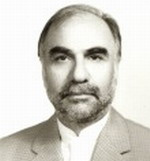International Sanctions; Unilateral Sanctions

Within the space of a few weeks, Iran has faced two different types of sanctions: the international –imposed by the UN Security Council- and the unilateral regional –embraced by the EU, the US, Australia and Canada. On June 9, 2010, the UN Security Council approved Resolution 1929 to enact a new set of binding punitive measures aimed at discouraging Iran from continuing its much-cited controversial nuclear program. But as a more dramatic sequel to that, on June 17, 2010, the European Union proved its enthusiasm for pressuring Iran—perhaps because the latest draft resolution only acknowledged the Five plus One as the sole international diplomatic entity party to nuclear talks with Iran—by voting for a new package of unilateral sanctions which upset even Russia, a key trade partner of both Iran and the European Union. Brussels, nonetheless, believes that such unilateral regional sanctions measures can persuade Iran to return to the negotiation table and display commitment to international norms and global expectations.
Although the international sanctions ratified by the UN Security Council are theoretically more effective due to their binding nature, regional sanctions can also add to the pressures Iran is already facing. What the UN resolution had merely sketched out, namely the link between energy and Iran’s nuclear program (read the UN resolution), the Europeans –and of course the Americans- never failed to grasp. The EU resolution has directly addressed, and banned, investment, technical assistance and technology transfers to Iran’s energy industry. Such heavy sanctions can jeopardize the future of oil and gas projects that Iran has meticulously planned for. The sanctions bill approved last week by the U.S. Congress has aimed at the same spot, albeit with a focus on energy sources such as gasoline and jet fuel.
Unexpectedly, major European oil companies such as Royal Dutch-Shell –which once freely roamed the Iranian energy sector due to the absence of their American rivals- are seriously considering the sanctions. Smaller companies and friendly states such as Venezuela can of course supply Iran with petrol, although one recognizes that oil giants such as Total and Royal Dutch-Shell would be much better guarantees.
Wielding their economic power, the United States and the European Union, with the accompaniment of Canada and Israel, are intensively lobbying to forge a global consensus against Iran.
Darker days may await Iran if Iran fails to adopt a coherent foreign policy. Many countries might be unwilling to enforce the sanctions against Iran; nevertheless, they have no option but to succumb to pressure from powerful countries. The EU, for instance, is pushing its trade partners (and EU member hopefuls) to carry out the punitive measures.
If the current trend continues, Iran’s already complicated situation will become even more challenging. The future depends on Iran’s diplomatic strategy and its handling of fiscal and monetary affairs in the critical energy sector.

